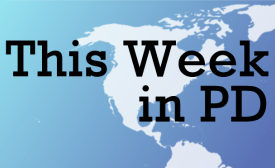diplomacy

Social media and new technology have spawned a new generation of digital diplomats. Meanwhile, governments try to defend against social media campaigns.
I had to laugh when I heard about the U.S. Agency for International Development’s botched effort to create a Twitter-like platform for Cuba intended to undermine the communist regime. Even the name — ZunZuneo — to the State Department’s credit, sounded like something cooked up in Silicon Valley, not Foggy Bottom.
On April 22nd, embassy communicators, journalists, thought leaders, and millions of online followers convened in Washington, DC to discuss how—and if—diplomacy has changed with technology. The consensus was that diplomacy will always be built on personal relationships and face-to-face interactions.
Former Vice President Al Gore told a crowd at the University of Hawaii on April 15 that using fake science to mislead the public on climate change is "immoral, unethical, and despicable." Currently on a weeklong trip to Asia, President Barack Obama can probably sympathize, as he faces a cadre of skeptics committed to the idea that one of his leading foreign policy priorities -- the pivot to Asia -- is somehow an illusion.
The United States is in the early stages of a substantial national project: reorienting its foreign policy to commit greater attention and resources to the Asia-Pacific region. This reformulation of U.S. priorities has emerged during a period of much-needed strategic reassessment, after more than a decade of intense engagement with South Asia and the Middle East.
On April 22nd in Washington DC, the Diplomatic Courier, United Nations Foundation, and the Digital Diplomacy Coalition held an event exploring the future of public diplomacy in the digital age. People around the world joined the conversation through Twitter and Livestream, bringing questions and insights from countries such as Nigeria, Australia, Mexico, and Turkey.
Of the world’s seven billion people, about 2.4 billion have access, in some way, to the Internet. The ability to connect many-to-many has led to some remarkable events and phenomena in recent years. The tools did not cause the Arab Spring, but they did allow for better organizing, amplification of messages, and the ability to show the world what was happening minute-by-minute, tweet-by-tweet.
Recently, CCTV aired a special program about Chinese President Xi Jinping’s visit to Europe. The program was even given a grandiose title: “A Bridge Between China and Europe.” China’s media continues to play up the success of Xi’s first visit to Europe.







